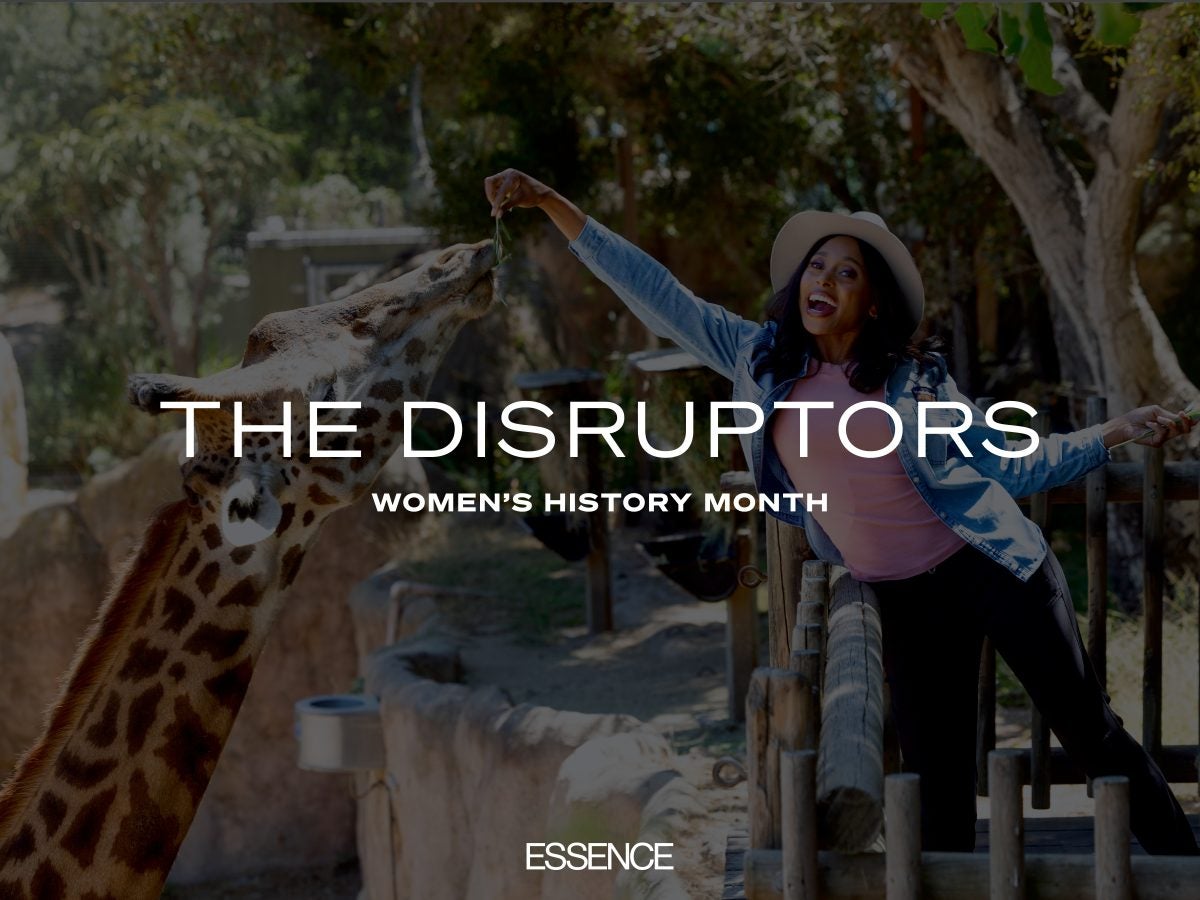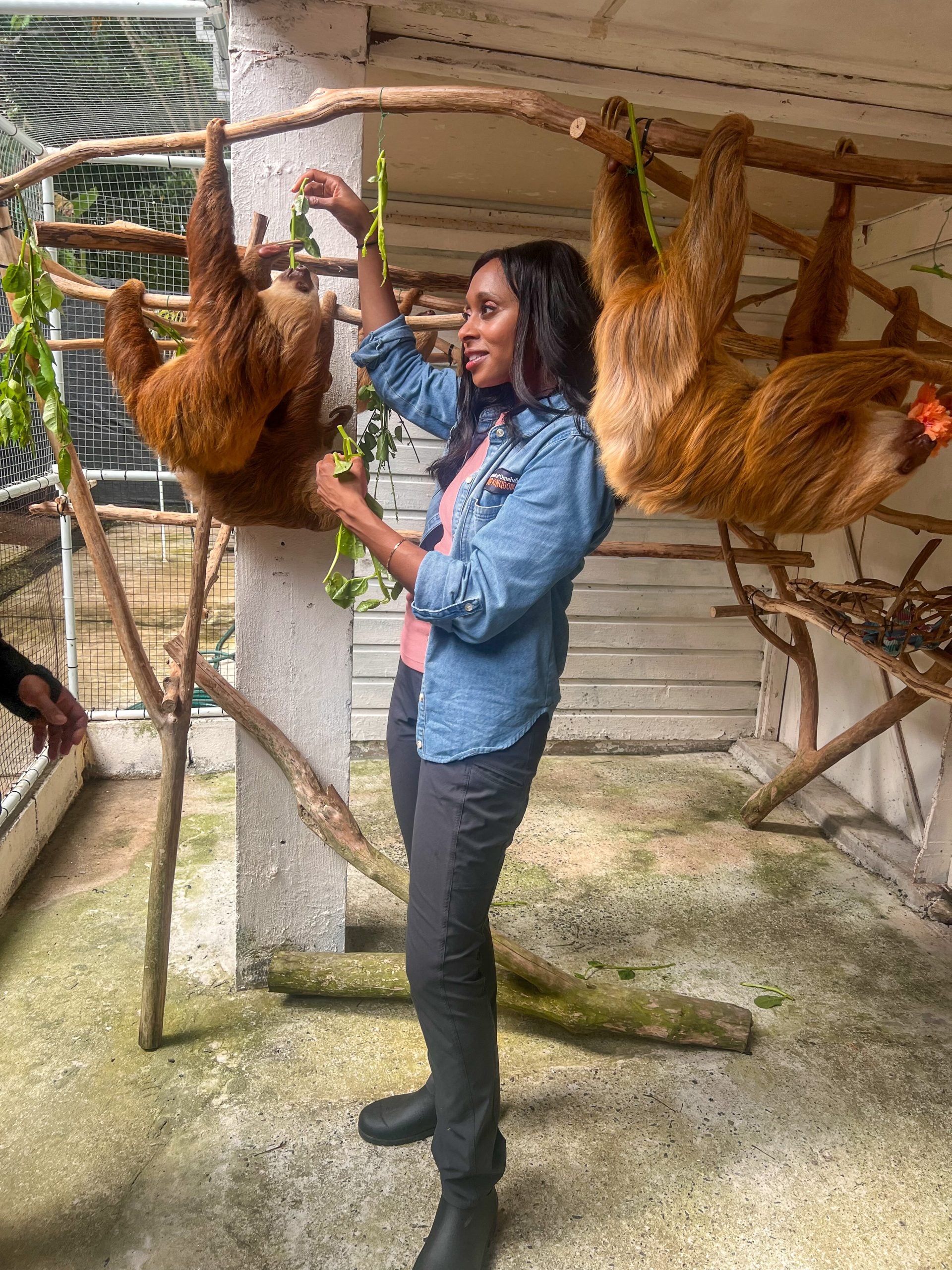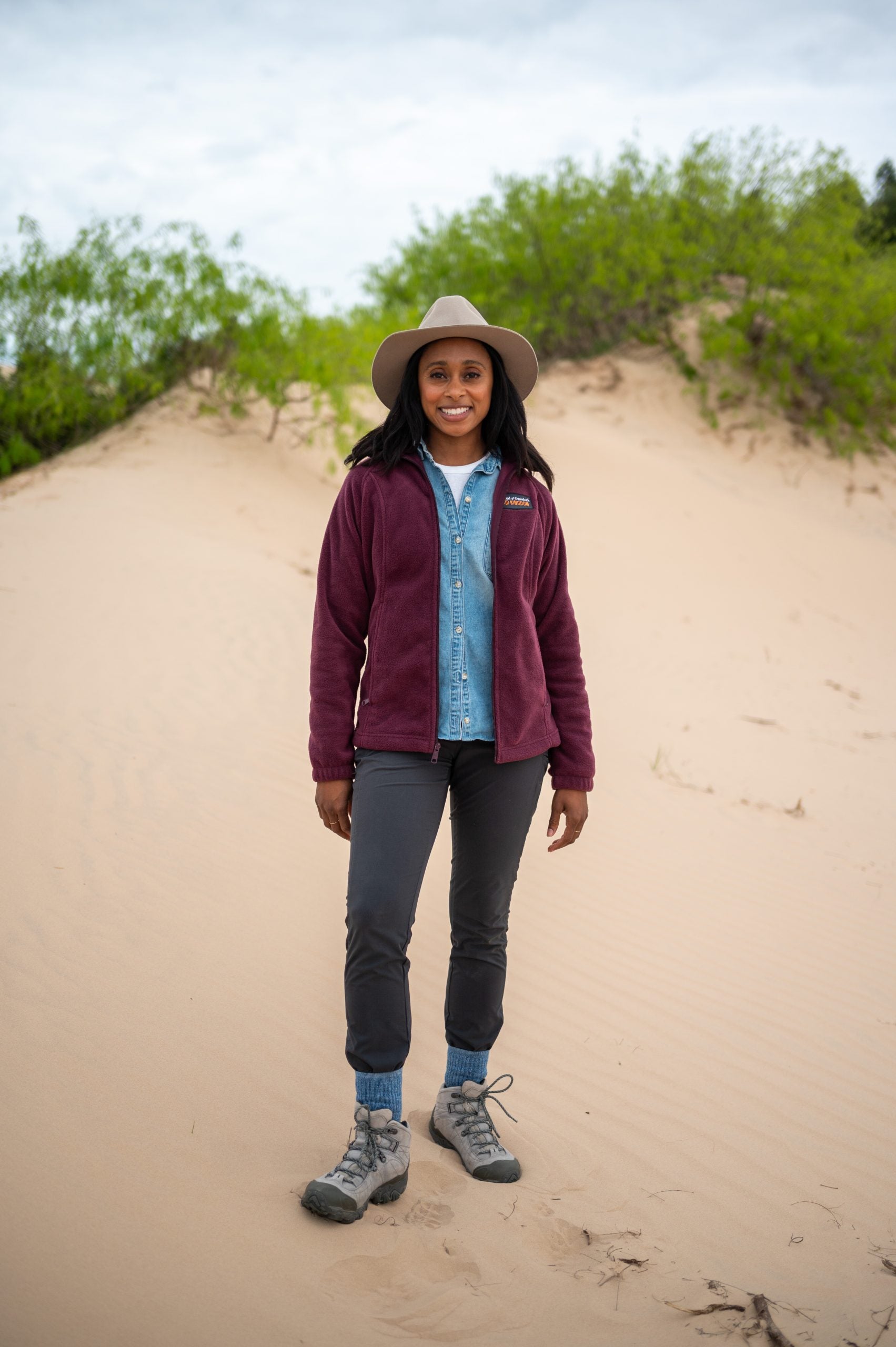
One might assume that to be a wildlife ecologist, a scientist who studies animals (and plants) and their environments, you have to grow up running after fantastical creatures, living in a rural area, a mini Steve Irwin in the making. But it was the complete opposite for Rae Wynn-Grant, PhD, a trailblazing ecologist and star of Mutual of Omaha’s Wild Kingdom Protecting the Wild.
“We had a house cat,” she tells ESSENCE. “We had fish here and there, and I had Guinea pigs, animals that were very normal pets. Nothing exotic or anything like that.”
For her, watching nature shows, which were always hosted by white men, introduced her to the beauty of the wild and the importance of preserving it.
“I grew up urban in big cities with a family that didn’t recreate in nature. We didn’t go hiking and camping or fishing or anything like that,” she recalls. “So my view to the outside, and especially to the wilderness was through watching nature shows on TV.”
Originally, she walked away from watching such educational programming thinking, “I want to be a nature show host.” That was the plan all the way through to college, until she went to her advisor and shared her career hopes, and they had to figure out how they would come to be. Nature TV hosting, of course, isn’t a major. After mulling over journalism and even acting, “finally that person said, ‘actually, environmental sciences sounds like a good fit, and even if you don’t end up on TV, you’ll at least be an environmental scientist doing the same work.'”
Wynn-Grant was sold. An environmental science major with wild animal conservation as her emphasis, she studied hard, getting through undergrad, seeking a master’s, and doing a wildlife ecology study abroad program in Kenya. At every step, she noticed that she was the only Black person around. She didn’t encounter other sistahs doing this important work until social media became the premiere way to connect.

“In my undergraduate program, I was the only Black person, and the first that they had had, to major in environmental science,” she states. During her study abroad program, five months in the East African country, she finally saw Black male ecologists, who were the instructors. These Kenyan men studied abroad in the UK and the U.S. and returned home to create more conservationists that looked like them.
While TV was the endgame for years, she was inspired by what she was learning and became passionate about studying the lions in East Africa, which she went on to do for four years. At a certain point, her work became so important to Wynn-Grant that she no longer needed to be on camera to make the impact she wanted to.
“Twenty years ago I started researching wild animals. Ninety-nine percent of my work in that time has not been on TV. It’s been an actual scientist at the highest level, two master’s degrees, a PhD, post-op faculty research positions, never thinking, oh, I’ll actually host a nature show,” she says. “The whole time I thought, ‘Wow, I’m so lucky that I am satisfied with doing this work without the cameras.’ I used to tell myself that all the time: ‘I love nature shows. I would absolutely say yes if a nature show came my way, but I don’t need it because I’m doing the real work and I’m helping this planet, and that is more than enough for me.'”
But as fate would have it, Wynn-Grant truly was meant to see her childhood dream come to fruition. In 2023 she was looped into talks for Mutual of Omaha’s Wild Kingdom Protecting the Wild. “I didn’t apply for this position,” she says. “I didn’t audition.” She was shocked when she realized she was a first choice to be a co-host alongside legendary wildlife conversationalist Peter Gros. By the summer of that year, she was filming the latest season of the nature show, the most-watched weekend wildlife show across broadcast and cable television in America. Season 2 airs on NBC every Saturday morning (check your local listings), as well as on Peacock and Wildkingdom.com.
A Black woman co-hosting a nature show is a great feat, and one that Wynn-Grant hopes will inspire young Black girls and boys to become scientists. Even if it doesn’t end with a TV series, it can pan out to work in a laboratory, discovering the genetics of different animals, working as a teacher creating the next generation of scientists, and perhaps the chance to be a zookeeper or work at a wildlife sanctuary. Whatever one’s skillset, she says you can have a fulfilling role in wildlife conservation.

“I did not know I wanted to be a scientist. I wanted to be a nature show host. I wanted to do what I was seeing on TV. And it wasn’t clear to me that what I was seeing on TV was science,” she says. “I believe that’s still the case. I believe that probably when Black and brown children watch Mutual of Omaha’s Wild Kingdom Protecting the Wild, they see me and my co-hosts doing awesome stuff with wild animals and they’re like, ‘Ooh, I want to do that too.’ And what my co-host Peter and I try really hard to do is to emphasize this is wildlife conservation. This is a field you can go into. I want to be able to introduce a passion for science, particularly for Black girls, in this informal way. Not in a classroom with a lecture but sitting on your couch with your family, eating some popcorn, getting this informal education, and hopefully planting a seed that, hey, Black women do this type of science. Black women do adventure and mission critical work. And maybe you didn’t realize it until now, but maybe you want to be a scientist too.”
Wynn-Grant has accomplished so much already in a field that still lacks diversity. There’s still more to do, though. In addition to opening doors for future Black women and men scientists, she’s also looking forward to continuing to change the world in the best way possible through her work. And if that just so happens to lead to a Nobel Peace Prize, that’s cool, too.
“It’s not actually about the prize. I want my work to be worthy of being considered at the level of a Nobel Peace Prize. This means I have served, and I have been in service to the planet, the people, wild animals, and living things for my entire life. So again, if I don’t win, that’s fine, but I just want to continue to serve and to creatively try to find solutions to our planet’s biggest problems,” Wynn-Grant says. “Ultimately, my goal is to continue to devote my life to things that will create a healthy, balanced planet in the future.”

